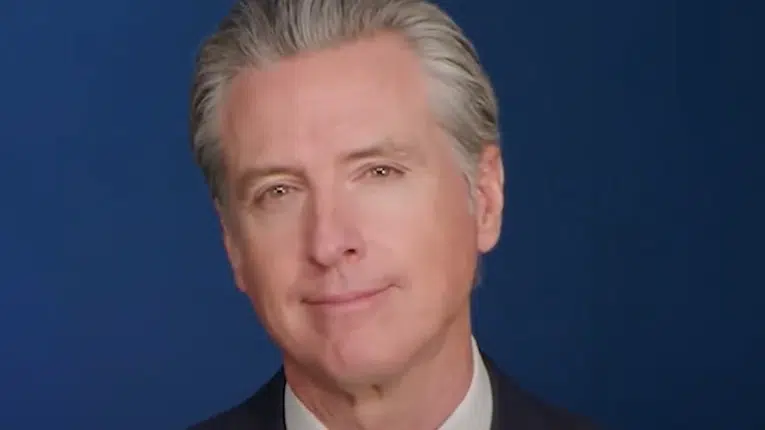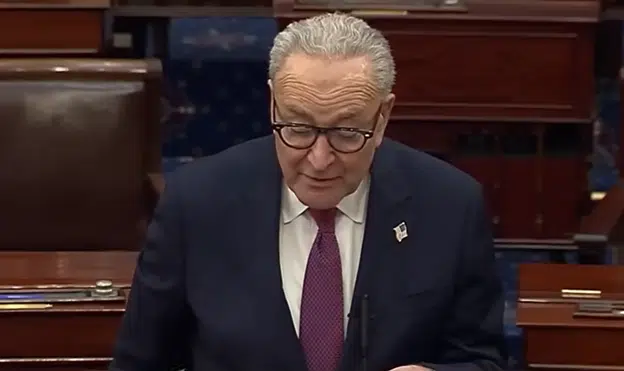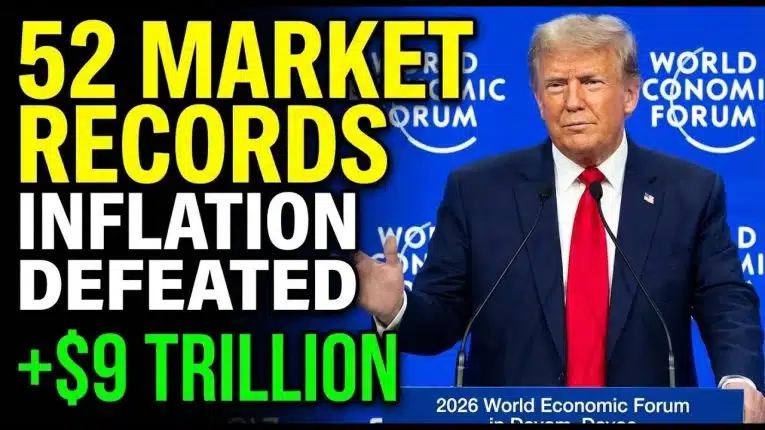Realists in the great land down under have finally emerged on top in rebuking epic scams that have wrought disastrous economic consequences. On September 7, the national Liberal Party (not to be confused with the American liberal brand) ousted the climate alarm-promoting Labor Party which had imposed a deeply unpopular and costly carbon tax, or so-called “carbon pricing mechanism”.
Major Climate Change in the Electorate
A June 2011 poll revealed that almost 60 percent of Australians opposed the tax, while just 28 percent favored the scheme (the rest undecided). As David Briggs of Galaxy polls observed: “The problem for the government is that most voters believe the personal cost outweighs the environmental benefits.” Many opponents also believed that man-made global warming theories are a “hoax”.
The resounding defeat of the Green Party-backed Labor Party following 6 years in power comes at a time when it is abundantly clear that the UN IPCC’s alarming computer model-based predictions of global warming got it wonderfully wrong in light of the past 15-17 years of flat temperatures despite increasing atmospheric CO2 concentrations. To top off that inconvenient good news, the Arctic ice sheet which was supposed to have disappeared has been rapidly expanding.
Under the new government headed by incoming Prime Minister Tony Abbott, the conservative coalition is preparing to dismantle and consolidate the myriad anti-carbon global warming-premised schemes spawned under the previous government. That bureaucratic apparatus currently consists of more than 30 programs under seven departments and eight agencies.
After his coalition secured a solid victory, Abbott pronounced: “From today I declare that Australia is under new management…Australia is once more open for business.” During an earlier election speech he predicted that if Labor were to sneak back, the carbon tax would go up to AUD$38 a tonne by 2020, and to an almost unimaginable AUD$350 a tonne by 2050. He said “Right now, that’s a AUD$550 a year hit on families that will just get worse if Labor stays on.” He also forecast that the carbon tax would lower national per-person income nearly AUD$5,000 by 2050.
Restructuring of the federal climate regime was a central election platform issue, widely viewed by the public as a referendum to restrain the “Green machine’ which has contributed to record business failures and soaring costs, even for essentials. Chief Executive Mitch Hooke with the Minerals Council of Australia has said that the carbon tax was costing the economy more than AUD$100 million per week. He also points out that a 30 percent tax imposed by the Labor party upon mining profits adds an additional unsustainable burden, particularly upon the coal sector, resulting in project cuts and job losses.
Predictably, alarmist opposition is heating up to stop the new government from capping the carbon tax. Outgoing Prime Minister Kevin Rudd continues to attack his replacement for allegedly failing to live up to international commitments on reducing carbon emissions. Yet Abbott argues that obstructionism could cost them dearly. “It will obviously be an issue” for the Labor Party, he explained, “whether it learns from its mistakes and whether it’s prepared to accept that it simply got it wrong when it came to these toxic new taxes.”
A broad coalition of pro-Liberal Party businesses and state governments has warned that a delay in abolishing the carbon tax until next year when new senators are seated will also cost the economy billions more. Queensland Treasurer Tim Nicholls has said that the Senate was “there to protect the rights of the states and the states don’t want Labor’s carbon tax.” The Energy Supply Association of Australia has predicted that such a delay would cause businesses to pay more than AUD$4 billion for the “carbon price” between 2013 and 2014, with much of the costs passed on to consumers.
Although Abbott had given a “pledge in blood” as a former opposition leader that his party would undo the damage caused by the carbon tax and other Labor policies upon returning to power, that isn’t going to come about without struggle. Andrew Hughes at the Australian National University in Canberra believes that, “In the first 100 days, the new government will try to get as much through Parliament as they can…Labor will try to put up resistance on scrapping the carbon price, but it may not be able to block it, depending on how the Senate plays out.”
While the carbon tax looks almost certain to be abolished eventually, and some of the climate regime will be reined in, there is some evidence that the new government is already beginning to waffle on specifics and offer its own carbon-reduction compromises in order to win Senate support. A so-called “Direct Action” proposal, for example, calls for squandering taxpayer money to buy dubious “emission reductions” from other countries.
A Teachable Lesson for America
As American Energy Alliance spokesman Benjamin Cole notes: “The results of the election should be an instructive lesson for U.S. lawmakers who have yet to understand the economic consequences of a carbon tax.” He warns that “Given the results of Aussies’ election, U.S. policymakers who want to replicate the failed Australian experiment on the U.S. economy will do so at their own peril.” Some lawmakers who support it are already feeling a political sting.
AEA has recently targeted Alaska Democratic Sen. Mark Begich and North Carolina Democratic Sen. Kay Hagan with anti-campaign ads for their favorable March votes on measures attached to a non-binding Senate Democratic budget which amounted to support for a carbon tax. Begich and Hagan both also voted against an amendment by Missouri Republican Sen. Roy Blunt that would have blocked a carbon tax. In addition, Begich voted in favor of an amendment by Rhode Island Democratic Sen. Sheldon Whitehouse that called for a “fee on carbon pollution.” Begich and Hagan, who both face reelection in 2014, have called the ads misleading.
Remarkably, former Secretary of State George Shultz, and economist Nobel laureate Gary Becker, two senior fellows at Stanford University’s conservative Hoover Institution, co-authored an April 8 Wall Street Journal article advocating a “revenue neutral” tax on carbon. They began by saying, “Americans like to compete on a level playing field to win on competitive merits.” They then go on to argue that the way to level that playing field is to introduce that tax on what they described as a “major pollutant” to “encourage producers and consumers to shift towards energy sources that emit less carbon – such as toward gas-fired power plants and away from coal-fired plants – and generate greater demand for electric and flex-fuel cars and lesser demand for conventional gasoline-powered cars.”
The op-ed piece proposed that this can be accomplished in two possible ways. It might be imposed upon the population-at-large at the point of consumption (gasoline stations and electricity bills), or alternatively, could be collected as a tax at the production level to “greatly reduce the number of collection points” through the IRS or Social Security Administration. In the case of using IRS, “an annual distribution could be made to every taxpayer and recipient of the Earned Tax Credit. In the case of SSA, the distribution could be made in terms proportionate to the dollars involved, to everyone either paying into the system or receiving benefits from it.”
And you thought income redistribution was just a liberal Democrat thing?
Sadly, they aren’t the only prominent and usually brilliant conservatives who seem to have sampled the carbon tax Kool-Aid. Reagan economist Arthur Laffer has said he would support such a tax in exchange for a payroll or income tax reduction; Bush 43 economist Greg Mankiw supports a global tax; and Douglas Holtz-Eakin, a senior advisor to John McCain in 2008, wants a tax to provide the energy industry with regulatory “certainty.”
President Clinton attempted a similar gambit nearly 20 years ago with a proposed tax on energy use. His so-called “BTU tax”, which would have been imposed upon every segment of the economy, provoked a brutal backlash that should have been no big surprise. He and congressional Dems soon caved in to demands of a vocal anti-BTU coalition which included small businesses, the agriculture sector, the building trades, the transportation industry, manufacturers, and even social-service organizations representing poor and homeless clients who rely upon affordable gasoline and heating fuel.
As with Australia, this experience constituted another teachable moment. (The great English writer Samuel Johnson observed, “There is nothing like a hanging to concentrate the mind.”) One year later , in November 1994, Republicans took over control of the House for the first time in decades.
Raise your hand if you truly believe that a “revenue neutral” carbon tax has any chance of being enacted, or if so, staying that way for very long.
For the rest of you, expect that a newly imposed carbon tax would be revenue neutral only briefly, at best, and then become but one more cookie jar to raid in futile attempts to keep up with escalating demands of government’s spending addiction. And if you harbor any illusions that those tax rates won’t increase over time, consider a lesson taken from European VAT experience. Since the time it was implemented, the initial VAT rate of 10 percent in Germany has climbed to 19 percent, in France it is up from 13.6 percent to 19.6 percent, and in several other countries VAT rates now exceed 20 percent.
Also remember that from a social cost perspective, carbon taxes are, by nature, regressive, meaning that they inflict largest pain burdens upon low-income households. This is something that liberals, who claim to care more about such matters than heartless conservatives do, should begin to think about.
Such policies, driven by unfounded climate alarmism, motivated by Green crony capitalism, and embracing the vision of transforming America into a European-style socialist welfare state, will impose unacceptable social and economic costs. And as the Australian experience demonstrates, the damage will come at a high political price for those responsible as well.
Committee For A Constructive Tomorrow (CFACT) Larry Bell heads the graduate program in space architecture at the University of Houston. He founded and directs the Sasakawa International Center for Space Architecture. He is also the author of “Climate of Corruption: Politics and Power Behind the Global Warming Hoax.”







